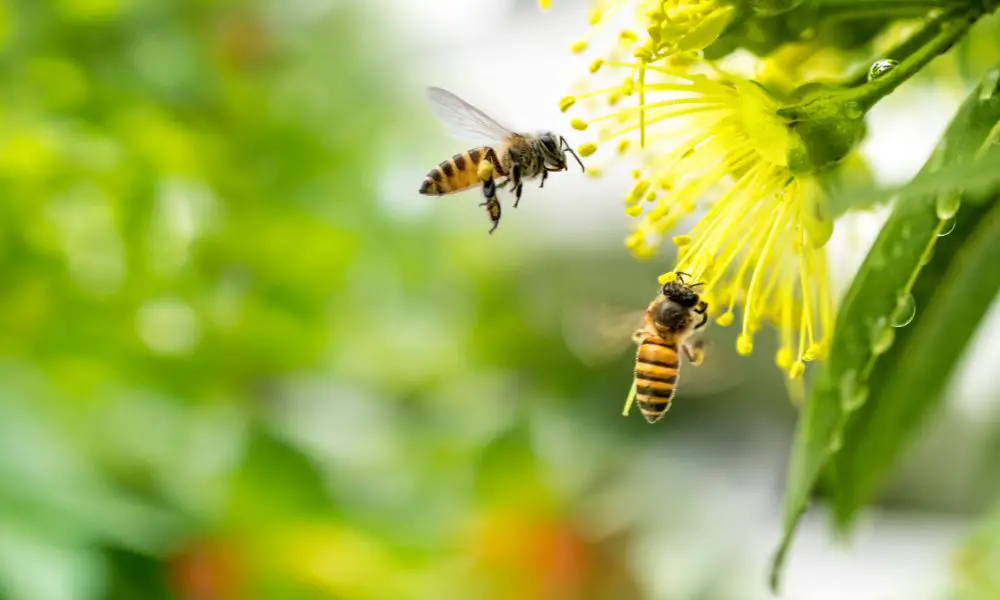

Every time you walk past flowers or cut open a piece of fruit, you have bees to thank. These hardworking insects are responsible for pollinating plants, which allows them to reproduce.
Now, just because we can eat the plants or see the flowers doesn’t mean that you and I understand pollination. So what is bee pollination, and how does it work? Let’s take a look.
For a plant to reproduce, it needs to transfer its pollen (which contains its genetic material) from the male to the female parts. This process is pollination, and it can happen in a few different ways.
One way is wind pollination, which is common among grasses. The pollen is very light and can travel long distances in the wind. But this method is inefficient because the pollen has to land in the right spot on the female part of the plant.
Another way is called self-pollination, which happens when pollen falls from the male part of a plant to the female part of the same plant. This method is more efficient than wind pollination but doesn’t produce the best genetic material for the next generation.
The third and most efficient way is cross-pollination, which happens when pollen falls from one plant’s male part to another’s female part. This pollination ensures that the plants have a mix of genetic material for the next generation.
Bees are among of the main ways that cross-pollination happens. When a bee collects nectar from a flower, pollen sticks to its body. The bee then flies to another flower, and some of the pollen rubs off, fertilizing the plant.
There are more than 20,000 species of bees worldwide, but only a small number are responsible for pollinating plants. The most common type of bee in North America is the honeybee. Humans keep these bees for their honey, but they also play an important role in agriculture.
Honeybees aren’t native to North America. European settlers in the 1600s brought them over. Since then, they’ve become a crucial part of our ecosystem.
Other bees that play a role in pollination include bumblebees, orchard bees, and leafcutter bees.
Bees are responsible for pollinating about one-third of the food we eat, including fruits, vegetables, and nuts. Without bees, we wouldn’t have many of the foods we enjoy today.
Bees are also important for the economy. In the United States, bee pollination is worth about $15 billion annually in terms of the crops it helps produce. Losing bee pollination is just one of the environmental consequences of bee disease and decline.
Understanding how bee pollination works and what it is can help you appreciate these important insects even more!
So the next time you see a bee, take a moment to appreciate all the hard work they do! If you want to help, you can plant flowers and avoid using pesticides, which can harm bees. You can also support organizations working to protect bees and other pollinators.
There’s nothing worse than lighting a new candle and watching it sputter out, tunnel, or…
Discover how woven metal fabric transforms restaurant design with its versatility, from feature walls to…
Upgrading your workspace? Get inspired by design ideas for materials, lighting, and amenities, and tips…
In recent years, the global interest in peptides has surged due to their wide-ranging benefits…
Maximize your workspace without overspending. Explore practical ways to expand your office using smart layouts,…
Discover how to create a thriving STEM community through hands-on, collaborative projects that are perfect…